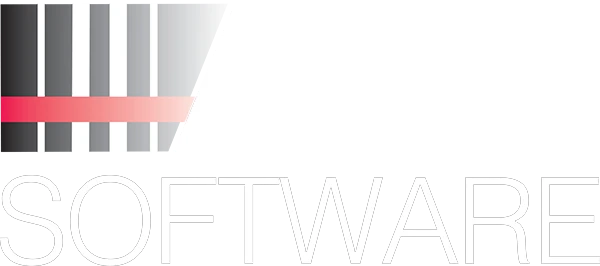If you’re like most business owners, you are always looking for ways to improve efficiency and streamline your operations. One way to do this is by implementing asset tracking software into your business. But what is asset tracking and what does asset tracking software do? And more importantly, why do you need it?
In this article, we will answer all of those questions and more. We’ll give you a basic overview of what asset tracking is and how it can help your business run smoother. Plus, we’ll tell you why should consider ASC Software for all of your asset management and asset tracking needs.
What is Asset Tracking and How Does it Work?
So, what is asset tracking? It is the process of monitoring and keeping track of assets and equipment throughout their lifecycle. This includes everything from when an asset is purchased to when it’s retired or sold.
Asset tracking is used to keep track of many different types of items. Whether they are physical assets such as vehicles or heavy equipment, office equipment, or digital assets such as files or software. This process can be done manually, but this is often time-consuming and prone to error. Using software is a far better approach.
In terms of how it works, there are various commonly used methods and tools. One example is to simply attach a small GPS tracking device to any item. The connected GPS system can then locate and track the equipment’s movement from the job site to other locations.
Asset Tracking as Part of an Asset Management Solution
Asset tracking is often part of larger, more comprehensive, asset management solutions. These asset management software applications help businesses keep track of all their assets in one place. They are used to manage and monitor assets throughout their lifecycle.
An asset management solution will typically have features such as:
-
- Inventory Management: Track quantities, locations, and statuses of assets.
-
- Maintenance Management: This includes both scheduled maintenance and preventive maintenance.
-
- Work Order Management: Create, assign, and track work orders related to assets.
-
- Cost Tracking and Analysis: Keep track of asset costs throughout their lifecycle.
Asset Tracking vs. Asset Management: What’s the Difference?
Although they are similar, there are some key distinctions between asset tracking and asset management.
Asset tracking is mainly concerned with location data and keeping track of assets and equipment throughout their lifecycle.
In contrast, asset management encompasses a wider variety of functions such as maintaining records, scheduling equipment maintenance, and managing assets.
So, asset tracking is a key part of asset management but just one aspect of it. And this is where asset tracking software comes in.
What is Asset Tracking Software?
Asset tracking software is an application that helps businesses keep track of their assets. This type of software offers a variety of asset management features and tools to make it easier to track assets. It can be a standalone application or part of a larger asset management system.
Some common features include GPS and radio frequency identification (RFID) tracking, barcode scanning, and the ability to create reports. All of these help business owners keep tabs on their assets, know where they are located, and track their movements.
Asset tracking software is used by all sorts of companies, from those with a fleet of vehicles and equipment to those with just a small office. Any company that has assets can benefit from using this type of software.
Tracking software also enables organizations to generate both preset and custom reports. These are useful for insurance purposes and for things like tax write-offs. Reports can also help companies keep track of their assets and see where improvements can be made.
There are many different features that asset tracking software can offer a company. But some of the most popular features include:
-
- GPS tracking integration: This allows businesses to see the real-time location of their assets.
-
- Check-in/check-out: This feature allows businesses to keep track of who is using an asset and when it’s due back.
- Reporting: This allows businesses to generate reports on their assets, such as where they are located, who is using them, and when they need to be serviced or replaced.

Asset Tracking Tools and Technologies
Asset tracking is often just one aspect of a larger asset tracking system. Within that system, there are different tools and technologies that a company can use to keep track of its assets.
Some of the most popular asset tracking tools and technologies include:
-
- RFID tags: Radio Frequency Identification (RFID) tags are small microprocessor asset tags that can be attached to physical assets. They emit a signal that can be tracked by software.
-
- GPS tracking: As we mentioned, GPS tracking integration is a common feature of tracking software. GPS tracking uses satellite technology to track the location of assets in real-time.
-
- Barcodes: Barcodes are a common way to track items. Barcode labels can be scanned by barcode readers or a mobile device connected to tracking software to identify an asset and its location.
-
- NFC tags: Near Field Communication (NFC) tags are another form of asset tags that are similar to RFID. They can be attached to assets and emit a signal that can be tracked by asset tracking software.
The Benefits of Asset Tracking Software
There are many benefits of implementing asset tracking software in your business. Let’s discuss a few of these here.
1. Save Time & Money
Perhaps the most obvious benefit is that it saves businesses time and money. By automating the asset tracking process, costs are reduced and businesses can save hours that would otherwise be spent manually tracking assets.
2. Reduces Human Error
Software also reduces the risk of human error. When assets are tracked manually, there is always the potential for assets to be misplaced or forgotten about. This can lead to costly mistakes that could have been avoided if the assets were tracked electronically.
3. Improve Your Bottom Line
Another benefit of tracking software is that it can help businesses keep track of their assets and improve their bottom line. By generating reports on assets, businesses can see where they are losing money and make changes accordingly. For example, if a business is regularly losing assets, they may need to invest in better security measures.
4. Stay Compliant
Another reason why businesses need a software tracking system is that it can help them stay compliant with government regulations. For example, many businesses are required to keep track of their assets for tax purposes. Asset tracking software can help businesses generate the reports they need to stay compliant.
5. Insurance Purposes
Finally, tracking software can help businesses keep track of their assets for insurance purposes. If a business has assets that are damaged or stolen, they can use the reports generated by the asset tracking software to file an insurance claim.
Why You Need an Asset Tracking System
As you can see, there are many reasons why asset tracking solutions are essential to businesses. If you’re looking for a way to save time and money, reduce the risk of human error, and improve your bottom line, you need a way to manage assets in your organization.
ASC Software: Comprehensive Asset Management Software with Asset Tracking
When it comes to asset tracking software, you need a program that is comprehensive and easy-to-use. That’s where ASC Software comes in.
We offer the most comprehensive and user-friendly asset management system on the market. With our system, you’ll have the right tools to track property assets in real-time, generate reports on asset data and asset utilization, schedule maintenance, enable remote asset management, and much more.
Conclusion
Asset tracking is essential for businesses of all sizes. It helps businesses save time and money, reduce the risk of human error, improve their bottom line, stay compliant with government regulations, and keep track of assets for insurance purposes.
If you’re ready to take your business to the next level, contact ASC Software today to learn more about our asset tracking solutions. We’ll be happy to answer any of your questions and help you get started.
FAQs
What is meant by asset tracking?
Asset tracking is the process of tracking items of property, both physical and digital. This can be done manually or through the use of software.
What is the best way to track your assets?
The best way to track your assets is through asset tracking software such as ASC Software. Our software makes it easy to track items in real-time and so much more.
What Are Some Common Assets That Businesses Track?
Some of the most common assets that businesses track include: computers, tools, equipment, inventory, and vehicles.
How Often Should Assets Be Tracked?
Assets should be tracked on a regular basis, at least once a day. This helps ensure that assets are always in the correct location and that they are being used properly.
What is an Asset Tag?
An asset tag is a small chip that can be attached to assets. They emit a signal that can be tracked by a software application.
What is NFC?
NFC is a short-range wireless technology that can be used to communicate with assets that have NFC tags attached to them.
What are NFC tags?
NFC tags are small chips that can be attached to assets. They emit a signal that can be tracked by NFC-enabled asset tracking software.
What is an RFID tag?
RFID tags are similar to NFC tags, but they have a longer range. They can be used to track physical assets from a distance.
Why is IT important to track your assets?
Information Technology (IT) is important because it enables accuracy and efficiency in the tracking of assets. This helps an organization ensure that equipment and items are in the correct location and are being used properly.
What is the best asset tracking software?
We believe that ASC Software is the best software on the market for tracking equipment and assets. It is comprehensive and easy to use, and it comes with a variety of features that make asset tracking easy for operations of all sizes.



